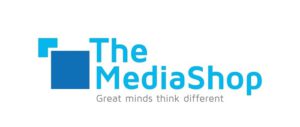 Jedd Cokayne, Business Unit Manager at The MediaShop
Jedd Cokayne, Business Unit Manager at The MediaShop
 I am not sure about you, but there is an underlying feeling that the world’s equilibrium is not quite balanced at the moment. I think this is abundantly evident in South Africa’s downturn in consumer confidence due to the current economic situation, the fact that we’re in an election year, the fuel price going up, Eskom leaving us in the dark and just a general lull in the market place.
I am not sure about you, but there is an underlying feeling that the world’s equilibrium is not quite balanced at the moment. I think this is abundantly evident in South Africa’s downturn in consumer confidence due to the current economic situation, the fact that we’re in an election year, the fuel price going up, Eskom leaving us in the dark and just a general lull in the market place.
Because of these general unease consumers tend to go into their shell and spending slows which turns most marketers grey overnight. Budgets are not met, targets have to be adjusted and explanations have to be had with stakeholders either nationally or internationally – that’s never a fun moment.
This slowdown in consumer spending makes every marketer relook their service and product offering as consumer’s expectations of them change and demand more for their hard earned cash. Just as brands thought they had their marketing offering down to a fine art, comes a punch out of nowhere, lands perfectly on the sweet spot and you find yourself flat on your ass on the canvas for the obligatory eight counts, if you are lucky, or the ten which ends the fight.

Right now it is vitally important for us to understand what the changes are in consumer’s expectations, how we work around them or modify our offerings to suit their needs, while still continuing to grow in the market.
Access to information has changed the consumer’s behaviour at never seen before levels. The more information they have, the more it influences their expectations and gives them the ability to evaluate products and services simultaneously to find the right choice for their needs at the right price.
Expectations can be measured in two ways, explicitly or implicitly. Explicitly means that consumers have certain mental targets in mind for a product’s or service’s performance eg, 30 minutes to deliver food, 60 minutes for a haircut etc. Implicit expectations reflect established norms on performance of one brand vs another brand.
We can go one step further into marketing terms to start determining how we need to change our marketing offering to meet those expectations in a very tough year ahead.
- Static performance expectations – evaluation of the consumer in terms of accessibility, customisation, dependability, accuracy and performance.
- Dynamic Performance Expectations – how the product or service is expected to evolve over time, changes required in service to support it into the future.
- Technological expectations – evolving technology changes in the product or service category to stay ahead of competitors
- Interpersonal expectations – relationship between the consumer and the product or service provider revolving around the ability to solve problems, ongoing communication and general client service.
- Situational expectations – How do you influence pre-purchase expectations and measure post purchase satisfaction?
Consumers continue to demand proactive service, personalised interactions and connected experiences, so what are we as brands doing to satisfy those expectations? Consumers demand a seamless experience with a brand and therefore departments within a company can no longer trade in silos, inter-departmental communication is key.
The ripple effect of a single bad experience or a missed customer experience goes way beyond a lost sale. 57% of customers justify a move to a competitor who provides a better experience and that meets or exceeds their expectations. As we know, this has a direct effect on the bottom line.
This year is going to be about the law of attrition and the brands that move with the ebb and flow of the market and the change in the consumer’s expectations will continue to grow in a very tough market. Personalise marketing efforts, adapt customer service to suit the ongoing needs and constantly change the communication to reflect the brand’s desire but always remain true to it.
2019 will remain a watershed year in the history of SA for a number of reasons but it will also be interesting to see how marketers adapt to remain relevant and meet those ever evolving consumer expectations.
- MRF Unveils Latest MAPS® Data - 20th February 2025
- The BRC announces changes to the board and updates for 2025 - 17th December 2024
- Top 50 DSTV TV programmes – October 2024 - 12th November 2024




